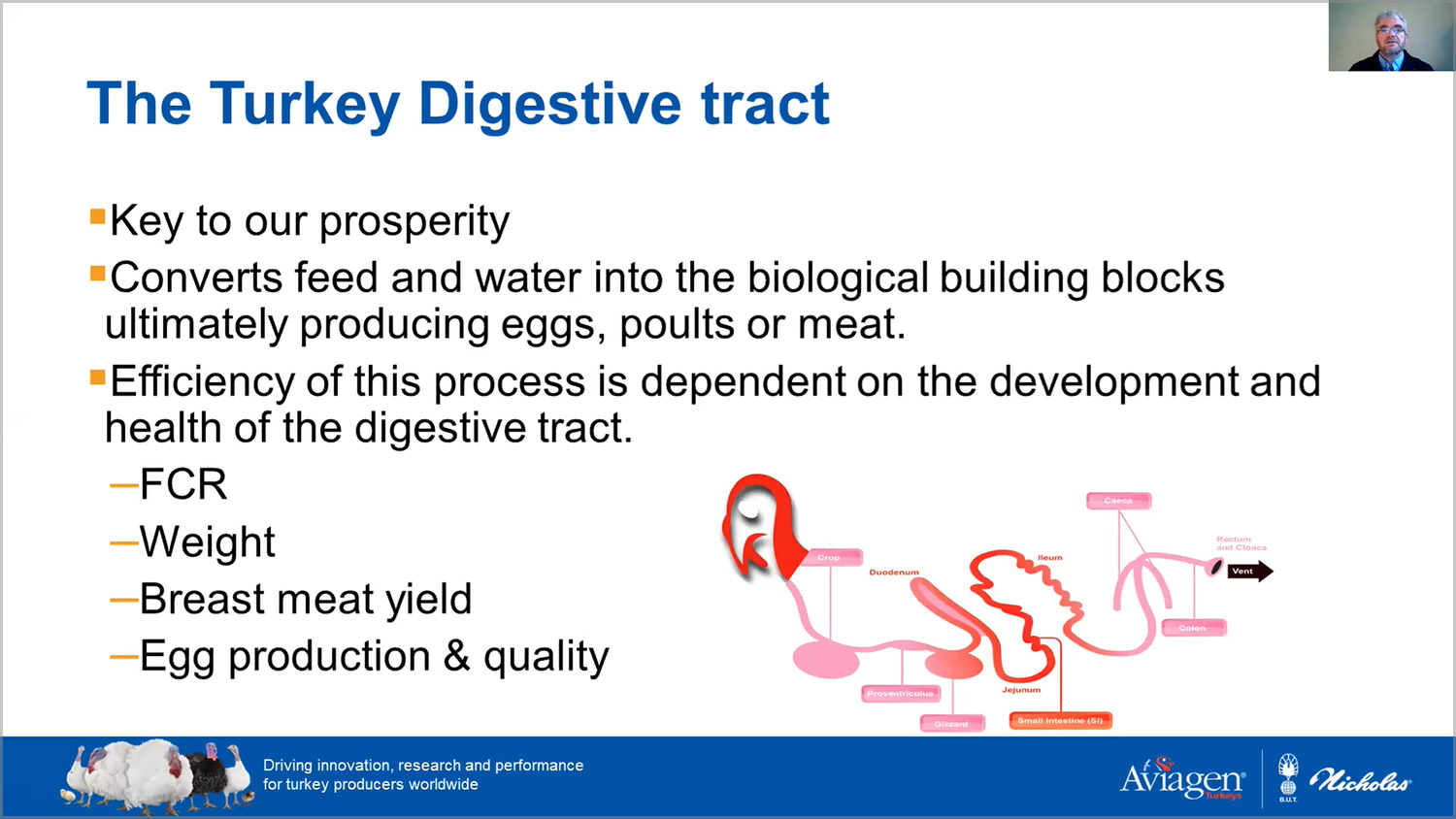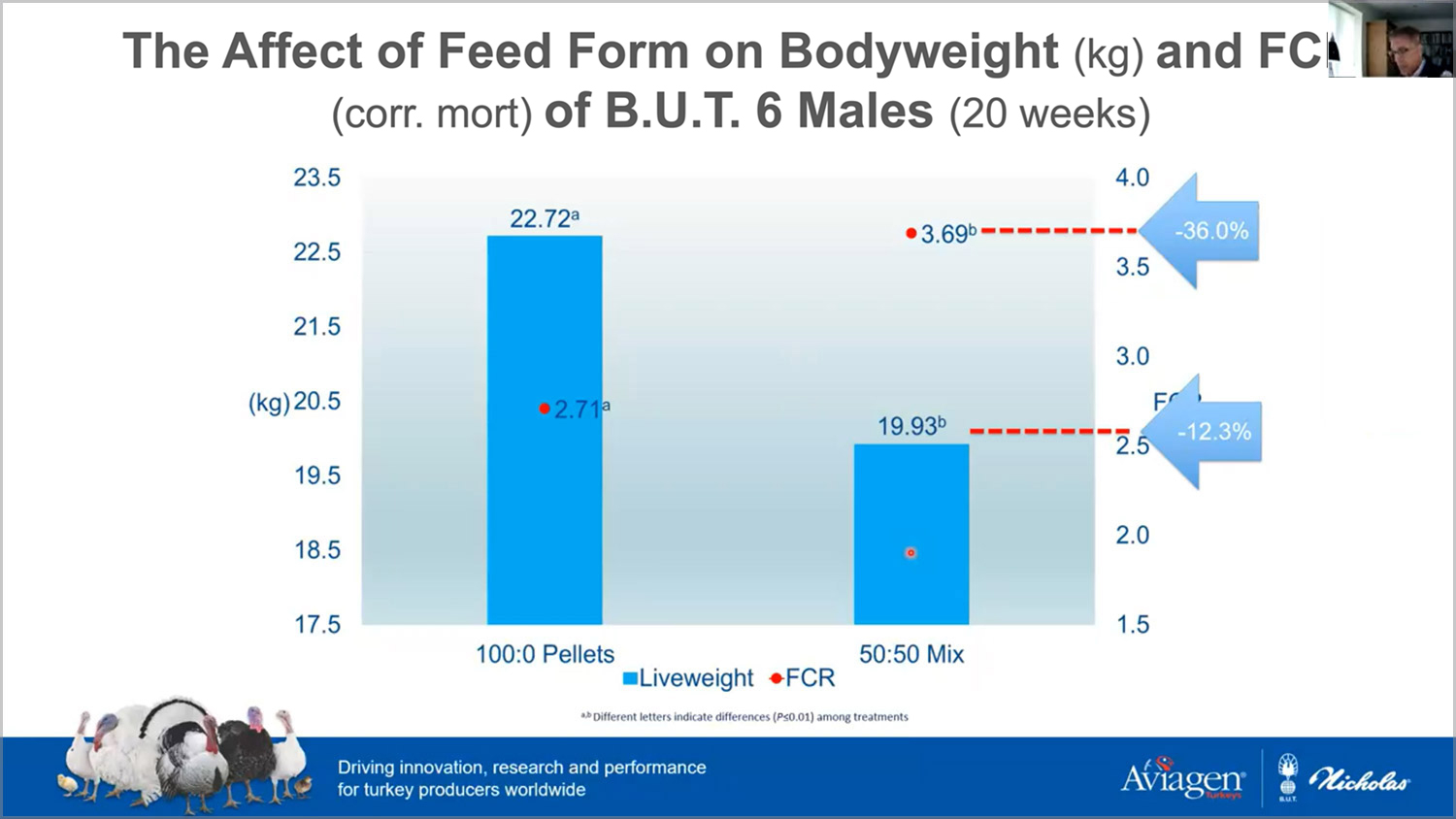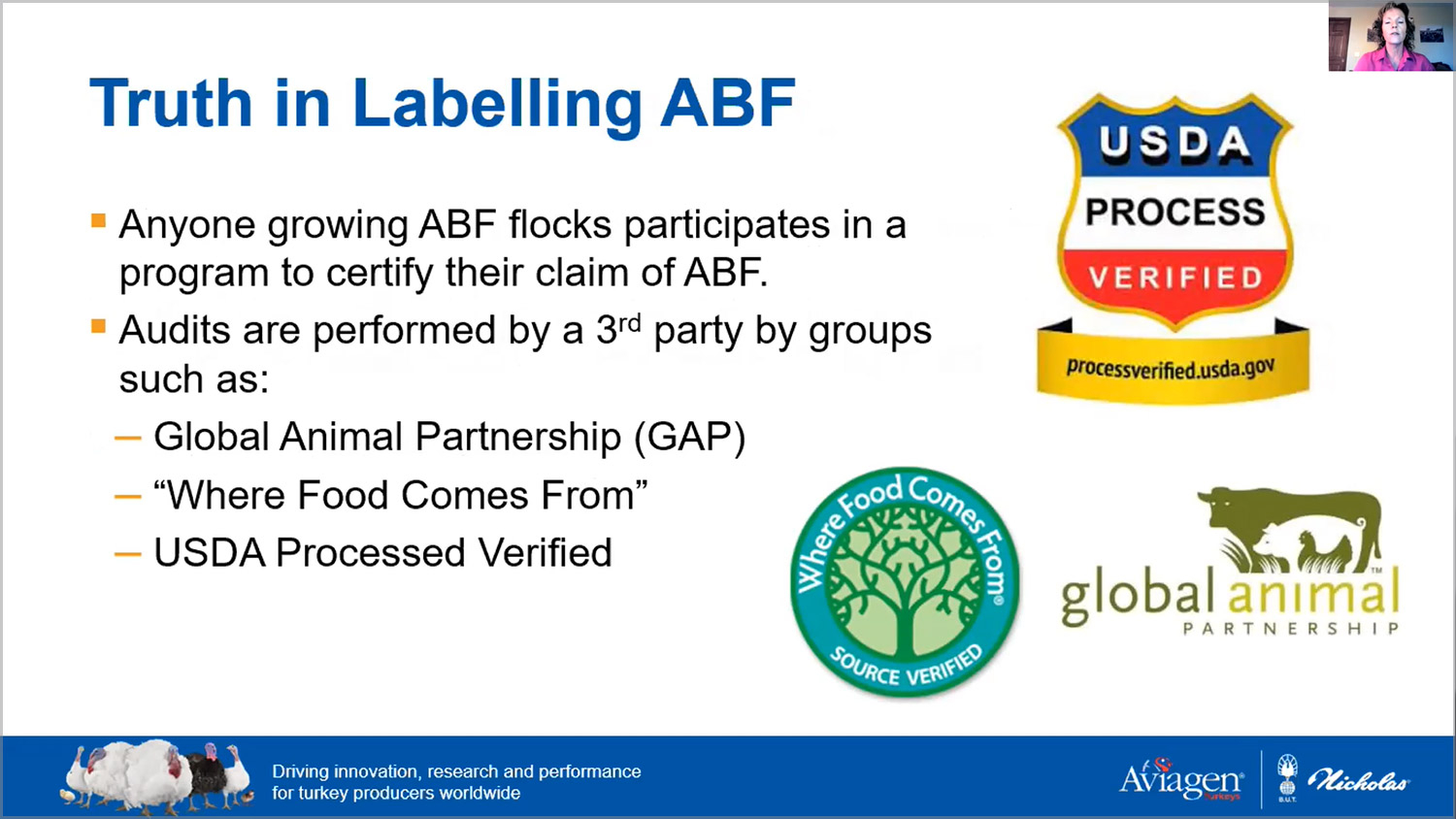Aviagen Turkeys Present Valued Industry Knowledge at Third Technical Talk
Many valued customers were welcomed to our third Aviagen® Turkeys (ATL) Technical Talk, which was held on Tuesday 6th July 2021. Technical Talks are a great way for us to stay in touch with our customers throughout these unprecedented times and allows us to continue providing top quality service during the COVID-19 pandemic.
Technical Talk topics presented were 'The Turkey Digestive Tract' by Kenton Hazel Director of Production and Veterinary Support at ATL, 'The Affect of Feed Form' on Performance by Marcus Kenny Company Nutritionist at ATL and 'Antibiotic Free Production in the United States' by Christy Puffenbarger Vice President of Tech Service at Aviagen Turkeys Inc.

Kenton began his presentation by reminding attendees about the structure and function of the turkey digestive tract and how this develops. The turkey digestive tract is the key to our prosperity. It converts the raw materials we provide in the form of feed and water into the biological building blocks that ultimately make up the eggs, poults and meat that our industry produces.
Kenton then showed an image of the entire digestive tract of a day old poult and one, two, three, six and ten week old turkeys. He continued to describe the overall layout of the GI tract before looking at each element in more detail and elaborating on the importance of good functionality.
He added, “In the current era where the use of antibiotics is actively discouraged or in some cases not allowed, it is clear that a better understanding of the functioning of the entire digestive tract and how we can make best use of its natural defences and functionality is needed”.

Marcus Kenny opened his presentation by describing how feed physical quality is often seen as an issue in the field. He presented images of variability of feed physical quality seen in commercial flocks. The images showed pelletized feeds in feed hoppers and pans with a high percentage of fines, which vary greatly from the breed standards.
Marcus then explained two recent evaluations run by ATL assessing the impact of different crumb particle size profiles. Seven-day bodyweight data showed very little difference between the treatments except for the fine treatment, which was lower than others. 14 day results suggested birds continued to be lower in bodyweight on fine particle size but perhaps some evidence that the birds performed better on the medium particle size.
Results at 20 weeks of age showed the 50:50 (fines: intact pellets) treatment resulted in more than a 12% reduction in bodyweight relative to the control. The real surprise was the impact on FCR which deteriorated by 36% in the poor feed treatment relative to the control at 20 weeks of age.
The data suggests that those birds fed the poor feed forms ate significantly more feed than birds fed the control diet but did not convert this feed to bodyweight. This data is vital in understanding how feed form affects weight and FCR of our birds and is the key to achieving optimum performance.

To finish, Christy Puffenbarger gave a presentation on antibiotic free turkey production in the U.S., how this sector of the industry is regulated and how production without antibiotics affects daily management.
Whether it is called Antibiotic Free (ABF), No Antibiotics Used (NAU), No Antibiotics Ever (NAE) or Raised without Antibiotics (RWA) there is a growing trend in the U.S. to produce turkeys without the use of antibiotics. Currently much of the ABF production in the U.S. is being driven by retail grocery and restaurant chains. The only USDA rule placed on producers of ABF poultry is that it must be proven through testing and documentation to the Food Safety and Inspection Service that no antibiotics were used in the feed, water or intra-muscularly in the production of the birds. Because of this, ABF production criteria are not identical from company to company and it is critical to establish the rules for raising ABF turkeys with the customer.
A successful ABF production programme is directly proportional to the level of management and attention to details. While there are many factors and conditions that can contribute to an unsuccessful programme the bottom line for success is a consistent detailed daily management program.
From everyone here at ATL, we would like to say a huge thank you to all of our customers who took the time to attend July’s Technical Talk.
The next Technical Talk will take place on Tuesday 21st September, please get in touch to find out more information.
